Unions have insisted that there will be no redundancies as a result of uncertainty over the Type 26 build timetable on the Clyde.
The SNP had earlier claimed that the situation meant the project was “delayed indefinitely” however it is understood that the steel will be cut for the first Type 26 in Q4 of 2017.
Duncan McPhee from Unite said the contract was still guaranteed.
“There is guarantees. The main issue is the timetable, which is causing us the real problems and that has to be sorted out as soon as possible.”
Mr McPhee also added that BAE bosses were in negotiations with officials at the MoD to resolve the timetable issues:
“It means for jobs that we have the workforce geared up for this programme and that workforce will remain. It means that we are going to have to do a lot of things between the company and moving different work packages about, keeping people at Rosyth maybe for longer working on the aircraft carriers, maybe having to transfer people down to Barrow for the submarine programme so we will keep the jobs.”
Peter Roberts, Senior Research Fellow for Sea Power and Maritime Studies at RUSI has said that slippage in the Type 26 programme may lead to extra ships being built on the Clyde in order to retain jobs at the yards on the river.
“What it’s going to mean for the Clyde is very significant and I think we couldn’t get a national shipbuilding strategy at a more important time and it might well be that we see further OPV’s being turned out on the Clydeâ€
He also suggested that the Type 31 light frigate could enter build before the Type 26.
Referring to the commitment of the government to the Clyde, he said:
“There is going to be a commitment, we see that from the government, of continued shipbuilding orders.â€
According to reports in the media a few months ago, union representatives were told by BAE Systems that a “worst-case scenario†of 800 redundancies was possible if the UK government pulled back from its commitment to the manufacture of frigates on the Clyde.
The defence minister has said the UK government remains “absolutely committed†to building eight Royal Navy frigates on the Clyde. Philip Dunne told the House of Commons “nothing had changed†since the plans were announced last November in a defence spending review.
Mr Dunne said the UK government’s commitment to Scotland and the Royal Navy was “crystal clearâ€:
“Let me assure the shipyard workers on the Clyde, this government remains absolutely committed to the Type 26 programme and to assembling the ships on the Clyde.â€
Mr Dunne also promised the programme would sustain 6,800 military and civilian jobs in Scotland, rising to 8,200 by 2022.
A MoD spokesperson said:
“The Government is committed to building ships on the Clyde and to the Type 26 programme. over the next decade, we will spend around £8 billion on Royal Navy warship. as set out in the Strategic Defence and Security Review, we will build two new offshore patrol vessels on The Clyde, maintaining Scottish shipbuilding capability ahead of the start of the Type 26 build.
We will also consult with industry and trade unions as part of the national shipbuilding strategy, which will set the UK shipbuilding industry on a sustainable footing for the future.â€
The SNP and others had said that any reduction in the number of Type 26 frigates being built on the Clyde would be a “betrayal†of the workforce.
The original plan for the class had been 8 anti-submarine warfare variants and five general purpose variants, this remains largely unchanged except for the specification of the later five vessels, which has been reduced to make them more affordable.
The Prime Minister has confirmed that all new frigates and additional vessels mentioned in the defence review will be built in Scotland.


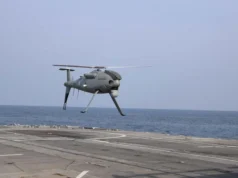
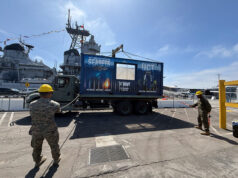
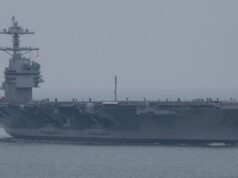
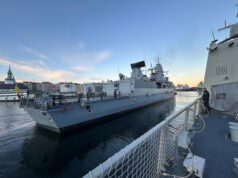
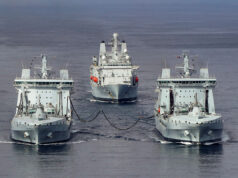


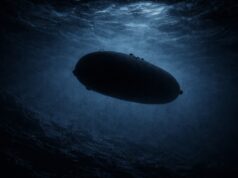

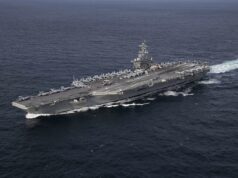

This is increasingly bizarre
Hi David, what’s bizarre?
What is it with this country with buying Warships , constant delays , cancelling numbers all it does is raise the unit cost.Will this government and others ever learn
Sorry but bizarre maybe an odd word to use. I suppose I’m reflecting a degree of concern over these several UKDJ posts on the T26 saga, including this one and the one about possibly building more OPVs to gap fill. Are we suppose to accept this as sensible and appropriate? I for one don’t think so. In a way it echoes Jason’s comments above. The reality here is that the construction start for the T26s is now clearly delayed by several years with all the knock-on effects including a rethink on the T23 transition out programme and associated cost increases, or having less frigates around. and given the faffing over “value for money” (which the educated cynic in me suggests is HMG double speak for further delay given the lack of in year funds). The fact we now have to keep the work force paid up is only adding o the inevitable increase in costs and potential unaffordability of the 8 in due course. Anyone suggesting we can build more OPVs is also just adding to the potential waste of the already restricted RN budget – more OPVs are vessels that are not planned for, will divert running funds and also consume personnel we are already unable to provide across the RN at the moment. Every pound spent on anything that doesn’t produce the new frigates as the years go by is simply a waste of the budget. Frankly, I see this whole T26 saga as a reflection of a budget that remains insufficient to meet the plans already agreed under SDSR15. We are very definitely watching an all too familiar conventional procurement faff so engrained in MoD….. increasing delay, cost inflation and reduced procurement. I was stunned the other day when Fallon was quoted as suggesting a T26 could cost up to £1Bn …… The lessons of political interference in defence procurement continue to bite deep into UK defence capability I’m afraid.
While we agree with your points entirely, we’re limited to running news of developments in the project and statements from those involved.
Indeed.
Hmmm. All just promises so I’m not sure how much to believe but some of the suggestions I see in the article sound pretty depressing…
“keeping people at Rosyth maybe for longer working on the aircraft carriers” – Oh boy! Putting the carrier build into go-slow mode a few years ago during the Brown government is widely credited as adding about £1bn to the cost. Any slowdown now would have a much lesser impact but still, I’d really like to see us actually benefit from the fact that PoW is apparently ahead of schedule rather than ending up pi#*!ng away that benefit.
“the Type 31 light frigate could enter build before the Type 26” – Not as bad an outcome but I think that would guarantee a BAE build although maybe, like the carriers, it could be based on someone else’s design such as BMTs. Still, I was really hoping that if T31 ends up based on BMT’s Venator 110 design then perhaps some competitve tendering by other yards might have happened to try and get better value for money.
All these delays with T26 looks as if they have the potential to cause collateral damage all over the place as far as naval procurement is concerned.
If necessary, build the OPVs but fund them from the DfID budget rather than MODs.
Is the MOD trying to avoid starting the project on the Clyde just as SCotland votes for independence ?